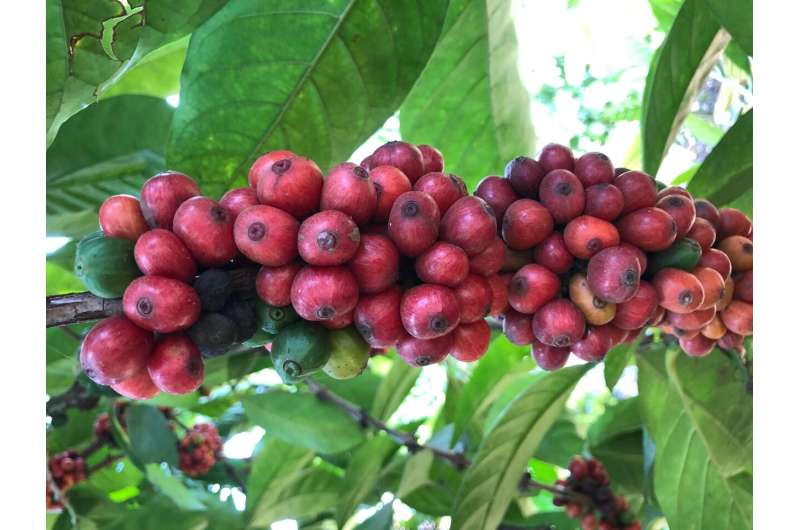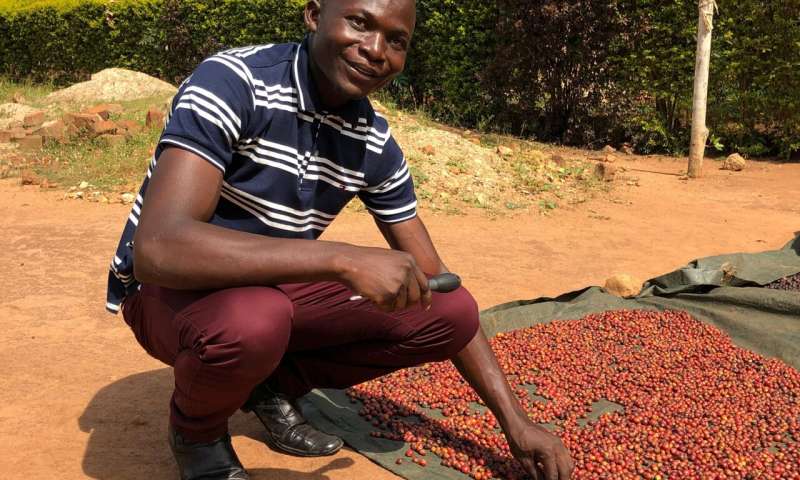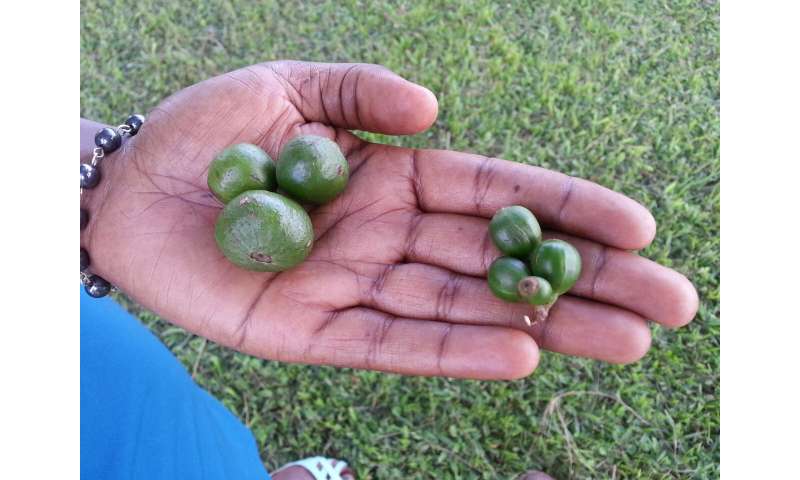Possible new ways to continue growing coffee in a changing climate

A team of authors from Uganda and the U.K. with backgrounds in botany, agriculture and the coffee industry has published an article in the journal Nature Plants, pointing out that that the world's coffee growers may soon have to find new ways to grow the popular bean plant due to climate change. In their paper, the group outlines three possible choices facing coffee growers and their preferred option.
Farmers are among those likely to be affected by climate change. In this new effort, the researchers looked at the impact climate change is already having on coffee bean production. They note that in some places where coffee bean plants grow, temperatures are changing and rainfall is becoming less stable. And that, they further note, puts production of coffee beans at risk.
The researchers found that coffee growers are almost certainly going to have to make adjustments to the way they grow their beans. They suggest that there are three main options: They can move to more suitable areas, change how they tend their plants or switch to different coffee bean plant varieties. The researchers suggest the third option is the most viable.
Currently, most of the world drinks coffee made from either arabica or robusta coffee beans. And over the past several years, yields have decreased for both as droughts have limited production in many areas. To keep the coffee flowing, the researchers suggest coffee growers consider switching to Liberica coffee bean plants.
They note that the variety has been tested at a number of sites and has been found better able to withstand more variable weather conditions. They also note that the beans stay on the plants after maturing, which makes harvesting easier.
The researchers acknowledge that switching has its drawbacks—the beans have tougher skin, for example, which will make processing them more difficult. They can also start to ferment if not harvested as soon as they ripen, which ruins the taste of the coffee. But the researchers conclude that the switch is worth it because, in the coming years, farmers may find it impossible to grown enough arabica beans to suit demand.
More information: Aaron P. Davis et al, The re-emergence of Liberica coffee as a major crop plant, Nature Plants (2022). DOI: 10.1038/s41477-022-01309-5
Journal information: Nature Plants
© 2022 Science X NetworkGlobal warming puts Arabica coffee at risk, and we're barreling toward a crucial threshold


No comments:
Post a Comment